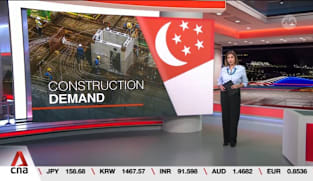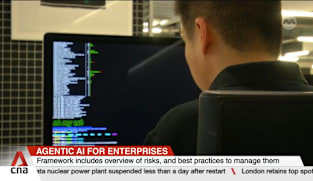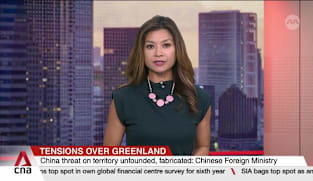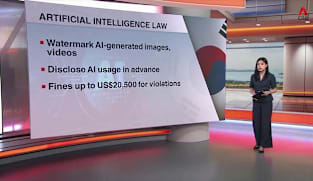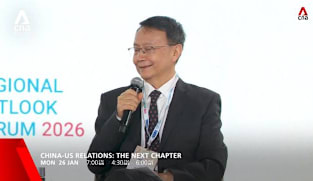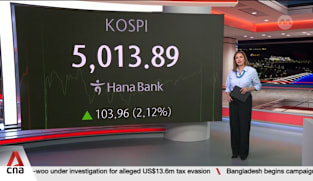Ong Ye Kung on Infectious Diseases (Amendment) Bill
The COVID-19 pandemic has given Singapore fresh perspectives on the management of infectious disease threats and its laws need to be reviewed to be ready for the next pandemic, said Health Minister Ong Ye Kung. Speaking in Parliament on Thursday (Mar 7), he said in the comprehensive review of the Infectious Diseases Act (IDA), various powers that continue to be relevant to future pandemic responses will be ported over. There will be one key change - a hierarchy of responses to address outbreaks of differing severity and giving the Health Minister the powers to effect relevant measures at different phases of a pandemic. Currently, the IDA only provides for the declaration of a Public Health Emergency (PHE) but in future, it wants to enable the Health Minister to declare either a Public Health Threat (PHT) or PHE, depending on the severity of the situation. It will also provide powers for the Minister to respond appropriately. It will introduce a new intermediate state of a PHT and spell out clearly the powers of the Health Minister during a PHT and a PHE. The Minister may declare a PHT if he or she is satisfied that the situation constitutes a serious threat to public health, and it is necessary to take measures to prevent, protect against, delay or control such incidence or transmission. The outbreak of COVID-19 in Singapore in 2020 would have been considered a PHT under the new provisions, said Mr Ong. The Minister will also have powers to make regulations to implement measures to respond. These include movement restrictions, prohibitions of gatherings or events beyond a specified group size, or the suspension of non-essential businesses, up to and including a circuit breaker. Declaration of a PHE is already an existing provision in the IDA, but the criteria will be finetuned with adjustments to the powers of the Minister and to factor in the state of healthcare systems and resources, in addition to the epidemiology of the disease. A PHE declaration will unlock two additional powers. Firstly, the Minister will be able to declare the whole of or any area in Singapore to be a restricted zone and impose curfew-like measures in those zones. Secondly, the Minister will be able to exercise the relevant powers under the Requisition of Resources Act 1985 (RORA) for the necessary resources to secure the safety of human life and health. The RORA can already be exercised by the Defence Minister during a PHE. Mr Ong said in a situation when Disease X strikes, the Minister may need to acquire private hospital beds, medical equipment, ambulances and manpower to shore up resources expediently. Parties affected by such requisitions will be compensated. Mr Ong said PHT and PHE declarations can be in force for up to 90 days and can be extended. There will also be safeguards in place. The Minister must first declare a PHT or PHE and publish a notice to bring the order to the public’s attention. All orders to declare or extend a PHT or PHE, and any regulations made during a PHT or PHE, must be published in the Gazette and presented to Parliament as soon as possible. Parliament has the authority to scrutinise the order or regulations, and if unsatisfied with the decisions, vote to annul them. Turning to contact tracing, Mr Ong told that House that as of February this year, all COVID-19-related personal contact tracing data derived from TraceTogether and SafeEntry has been deleted, except for data relating to a murder case in May 2020. He said the Government will closely monitor the technologies available, their possible use cases and relevance for future pandemics.
The COVID-19 pandemic has given Singapore fresh perspectives on the management of infectious disease threats and its laws need to be reviewed to be ready for the next pandemic, said Health Minister Ong Ye Kung. Speaking in Parliament on Thursday (Mar 7), he said in the comprehensive review of the Infectious Diseases Act (IDA), various powers that continue to be relevant to future pandemic responses will be ported over. There will be one key change - a hierarchy of responses to address outbreaks of differing severity and giving the Health Minister the powers to effect relevant measures at different phases of a pandemic. Currently, the IDA only provides for the declaration of a Public Health Emergency (PHE) but in future, it wants to enable the Health Minister to declare either a Public Health Threat (PHT) or PHE, depending on the severity of the situation. It will also provide powers for the Minister to respond appropriately. It will introduce a new intermediate state of a PHT and spell out clearly the powers of the Health Minister during a PHT and a PHE. The Minister may declare a PHT if he or she is satisfied that the situation constitutes a serious threat to public health, and it is necessary to take measures to prevent, protect against, delay or control such incidence or transmission. The outbreak of COVID-19 in Singapore in 2020 would have been considered a PHT under the new provisions, said Mr Ong. The Minister will also have powers to make regulations to implement measures to respond. These include movement restrictions, prohibitions of gatherings or events beyond a specified group size, or the suspension of non-essential businesses, up to and including a circuit breaker. Declaration of a PHE is already an existing provision in the IDA, but the criteria will be finetuned with adjustments to the powers of the Minister and to factor in the state of healthcare systems and resources, in addition to the epidemiology of the disease. A PHE declaration will unlock two additional powers. Firstly, the Minister will be able to declare the whole of or any area in Singapore to be a restricted zone and impose curfew-like measures in those zones. Secondly, the Minister will be able to exercise the relevant powers under the Requisition of Resources Act 1985 (RORA) for the necessary resources to secure the safety of human life and health. The RORA can already be exercised by the Defence Minister during a PHE. Mr Ong said in a situation when Disease X strikes, the Minister may need to acquire private hospital beds, medical equipment, ambulances and manpower to shore up resources expediently. Parties affected by such requisitions will be compensated. Mr Ong said PHT and PHE declarations can be in force for up to 90 days and can be extended. There will also be safeguards in place. The Minister must first declare a PHT or PHE and publish a notice to bring the order to the public’s attention. All orders to declare or extend a PHT or PHE, and any regulations made during a PHT or PHE, must be published in the Gazette and presented to Parliament as soon as possible. Parliament has the authority to scrutinise the order or regulations, and if unsatisfied with the decisions, vote to annul them. Turning to contact tracing, Mr Ong told that House that as of February this year, all COVID-19-related personal contact tracing data derived from TraceTogether and SafeEntry has been deleted, except for data relating to a murder case in May 2020. He said the Government will closely monitor the technologies available, their possible use cases and relevance for future pandemics.










